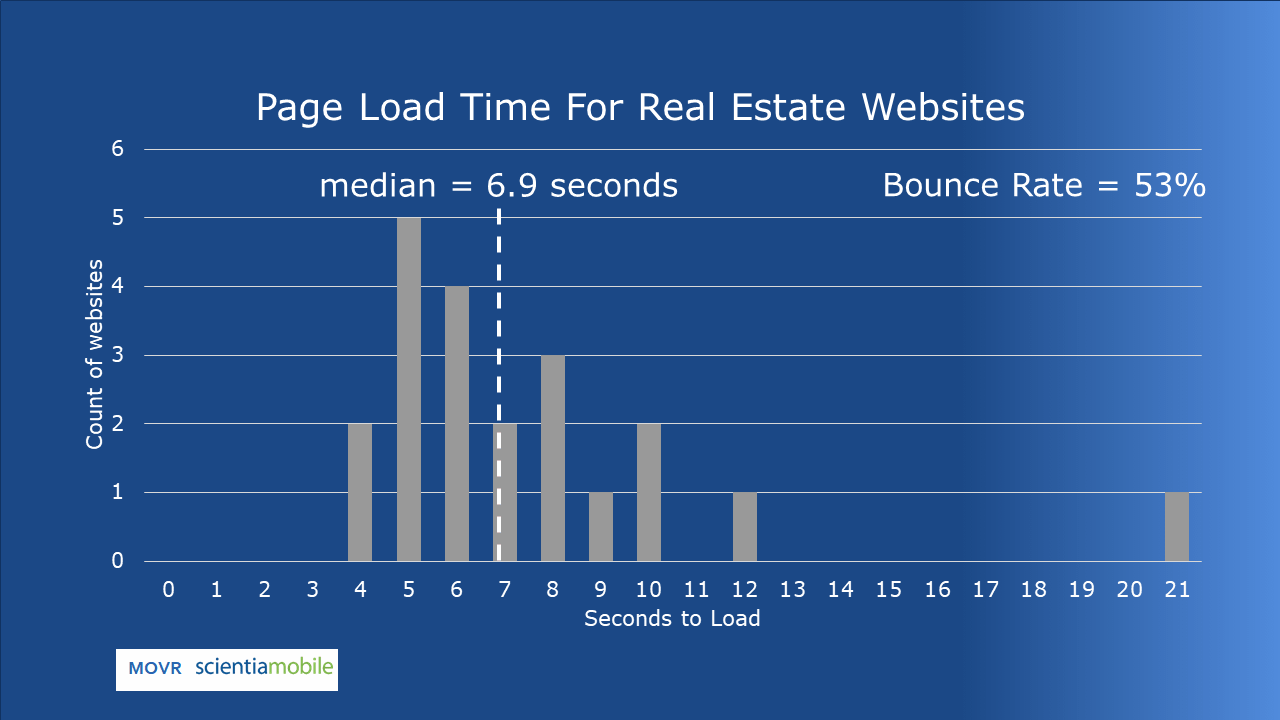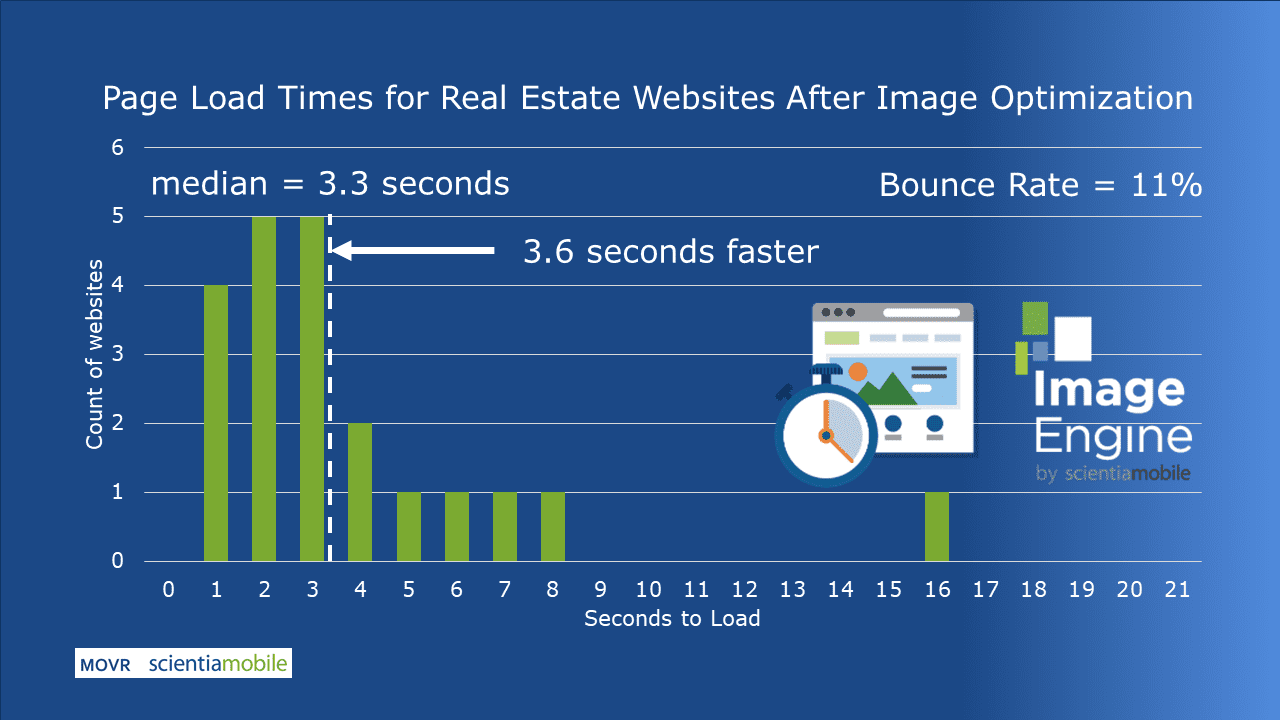How Fast Do Real Estate Sites Load?
We surveyed page load times of 21 of the top real estate websites. The median load time was 6.9 seconds. This 6.9 seconds is longer than user expectations of 3-5 seconds, resulting in high abandon and low conversion rates.

Online user experience and page loading time is a critical problem for the growth of online real estate. In 2018, 93% of buyers used an online website during their search. 44% of home buyers looked for properties online first. 73% used a mobile or tablet website or app. These statistics point out how important online sources are not only for real estate, but also for apartment rentals, and tourist/hospitality rentals.
Images are critical for real estate. Online inspections of the properties help accelerate the buying process and give the buyer a quick sense that there is a match.

Struggling to get your SEO just right? Start with your image optimization, and start with our blog!
How Image Optimization Accelerates Real Estate Website Speed
Over-sized image payload is a significant cause for slow-loading web pages. Images of houses or apartments are frequently larger than they need to be, particularly for mobile devices.
We applied image optimization to the 21 real estate websites and evaluated the impact on page load time. Image optimization cuts out 64% of image payload on real estate sites. Image optimization accelerates the median page load time from 6.9 to 3.3 seconds, a 3.6 second improvement.

According to a Pingdom study, this would reduce the bounce rate from 53% to 11%. Improved page loading also has beneficial impacts on SEO and sales conversion rates.
Learn more about mobile device trends and image optimization in the MOVR 2022 Q2 report.
